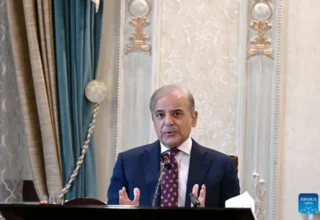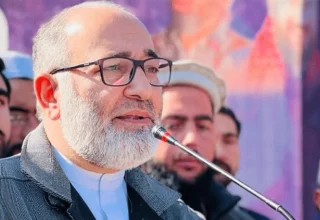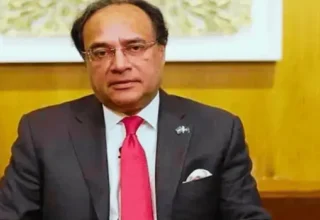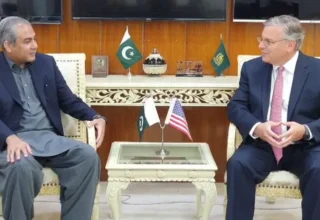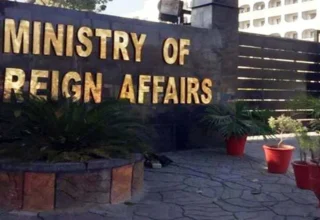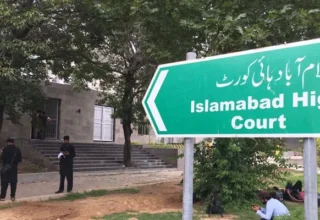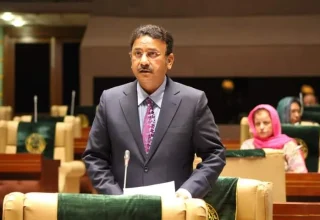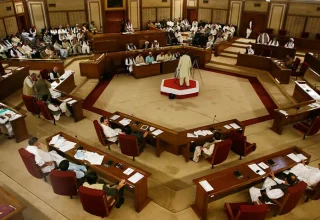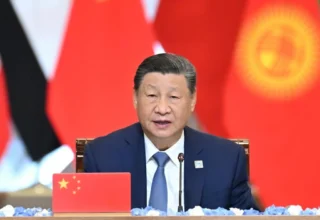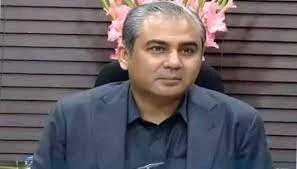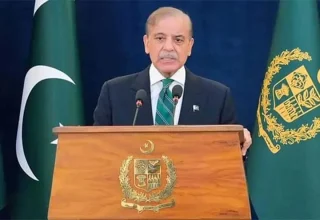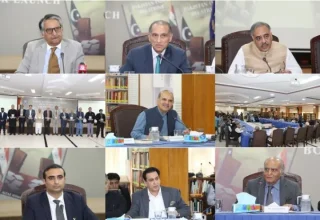
The India Study Centre (ISC) of the Institute of Strategic Studies Islamabad (ISSI) hosted the launch of Ambassador Aizaz Ahmad Chaudhry’s new book, “Pakistan-India Relations: Fractured Past, Uncertain Future.” The event featured Ambassador Jalil Abbas Jilani, former Foreign Minister of Pakistan, as the Chief Guest, while the speakers included Ambassador Vice Admiral Khan Hasham bin Siddique, former Ambassador to Saudi Arabia, and Raja Amer Iqbal, former President of the Rawalpindi Chamber of Commerce and Industry (RCCI).
In his welcome address, Director General ISSI Ambassador Sohail Mahmood said the book reflected both the abiding realism of a diplomat and the enduring passion of a peace activist. He noted that Ambassador Chaudhry had maintained his quest for peace and normalization between Pakistan and India with the optimism of a true believer in diplomacy. Ambassador Sohail highlighted that the book identified five central challenges to bilateral relations: the unresolved Jammu and Kashmir dispute, conflicting views on terrorism, domestic political dynamics, India’s regional dominance ambitions, and complex global geopolitics. While detailing these challenges, the author also suggested pathways for peaceful coexistence and for managing mutual perceptions.
Ambassador Sohail added that over the past eleven years, under the Modi-led BJP government, the structure of Pakistan-India relations had been systematically dismantled — reflected in the suspension of dialogue, India’s hardline stance on Kashmir, and its growing use of coercive and hybrid tactics. He pointed to structural constraints impeding progress, including the RSS-BJP inspired ‘Hindutva’ ideology, India’s use of Pakistan as a political tool, economic arrogance, and its major-power ambitions. He emphasized that Pakistan should continue to pursue peace with dignity and mutual respect, while safeguarding its core interests, including rights under the Indus Waters Treaty.
Chief Guest Ambassador Jalil Abbas Jilani praised the book as insightful and thought-provoking, covering the historical, cultural, and ideological roots of the conflict. He noted that the list of disputes between the two countries has expanded instead of shrinking, and blamed the revisionist policies of the current Indian leadership for blocking peaceful coexistence. Ambassador Jilani said India, while accusing Pakistan of “cross-border terrorism,” has itself been involved in state-sponsored terrorism. He expressed hope that future Indian leadership might adopt a more peaceful approach for the sake of the people of South Asia, and urged media, civil society, and academia to foster this realization.
Director ISC Dr Khurram Abbas described the book as a blend of scholarly rigor and diplomatic insight, offering a balanced and realistic approach without bias. Ambassador Aizaz Ahmad Chaudhry, discussing his book, said that four key issues continue to define Pakistan-India relations — deep mistrust, India’s role in the Kashmir issue since partition, its narrative on terrorism, and its regional hegemonic behavior. These factors, he said, have caused long-term hostility and disconnect, though he stressed that “the road to peace may be bumpy, yet not closed.”
Ambassador Vice Admiral Khan Hasham bin Siddique praised the book’s accessible style and evidence-based content, noting its importance for young readers seeking to understand Pakistan’s historical efforts to maintain equitable relations with India. He regretted, however, that Indian scholars and diplomats did not participate in such constructive exchanges.
Raja Amer Iqbal appreciated the book as a timely contribution to the discourse on Pakistan-India relations. He remarked that India’s persistent hostility and use of economic and political tools against Pakistan have hampered bilateral progress and trade, which could otherwise serve as a bridge between the two peoples.
In his concluding remarks, Chairman BoG ISSI Ambassador Khalid Mahmood described the book as a reflection of enduring hostility between the two nations, suggesting that peace may remain elusive as long as the current Indian government continues its hardline policies.
The event was attended by senior diplomats, academics, think-tank experts, students, and media representatives. —Internews



